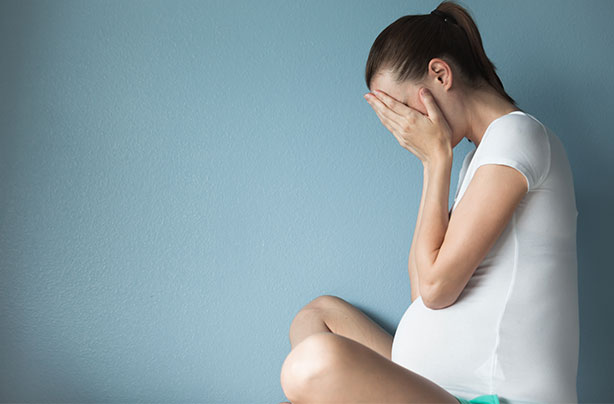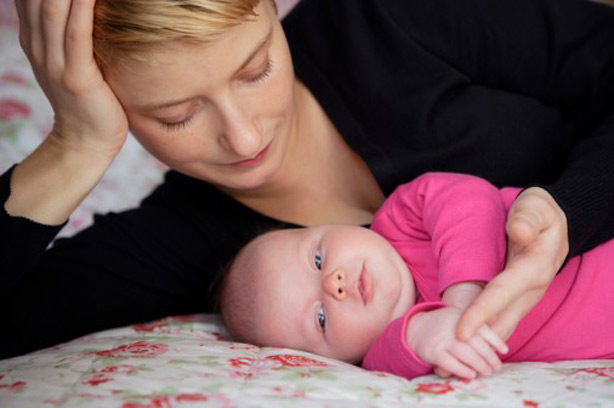Postnatal depression more likely to affect women who give birth in the summer or autumn, experts say
The new study found a correlation between women diagnosed with postnatal depression and the time of year that they gave birth

One in ten new mums suffer from postnatal depression after giving birth, and although the cause of the crippling mental health condition in certain people is largely unknown experts now believe that when you give birth is factor in how likely you are to suffer from the condition.
New research released by experts claim that women who give birth in either the summer or the autumn are at an increased risk of suffering from postnatal depression, compared to women who give birth in winter or spring.
The study, conducted by a team at Brigham and Women's Hospital in Boston reviewed the medical records of 20,169 women who gave birth between June 2015 and August 2017.
Jie Zhou, who led the research, said: 'We wanted to find out whether there are certain factors influencing the risk of developing postpartum depression that may be avoided to improve women's health both physically and mentally.'
While the study didn't seek to learn more about the causes of postnatal depression, the experts' findings did reveal a correlation between women diagnosed with postnatal depression and the time of year that they gave birth.

The study found women giving birth in winter or spring are less likely to suffer from postnatal depression
Explaining their findings, Jie Zhou suggested that mums who gave birth in the winter or spring are more likely to avoid postnatal depression because they are able to enjoy indoor activities with their babies.
GoodtoKnow Newsletter
Parenting advice, hot topics, best buys and family finance tips delivered straight to your inbox.
The study also identified the length of pregnancy, the choice to have an epidural during delivery, and a woman's BMI were all also factors affecting the risk of postnatal depression.
The NHS advise any parents who think they might be suffering from depression to seek help as soon as possible as the symptoms 'could last months or get worse and have a significant impact on you, your baby and your family'.
If you think you may be suffering from postnatal depression, please speak to your GP or health visitor.
Trusted, informative, and empathetic – GoodToKnow is the ultimate online destination for parents. At GoodtoKnow, our mission is 'simple': we're trying to make sense of parenthood. On the site, you'll find everything you need for a happy, healthy family life. Our huge archive of content includes more than 18,000 articles and 1,500 how-to videos. These include expert-backed advice features on parenting, dealing with relationship changes after having a baby, self-care for mums and managing your family finances. We also feature tried-and-tested product reviews and buying recommendations for every stage of family life - from prams and Moses baskets to birthday gifts and top toys.